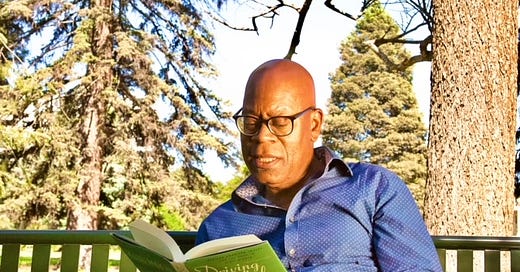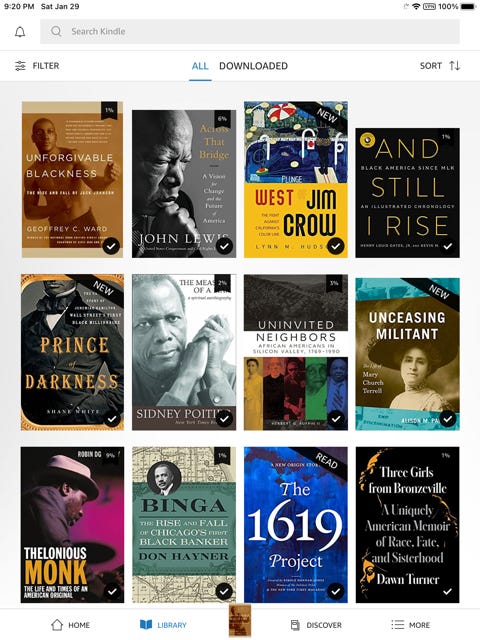Growing up in a middle-class family in Columbus, Ohio my brother and I received the recipe for success. We attended K-12 Catholic schools, took music lessons, and were exposed to the arts through the Columbus Symphony Orchestra. Both parents were heavily invested in our upbringing, wanting to expose us to the realities of growing up in a world that so happened to be predominantly white.
Sadly, my primary exposure to the chocolate world consisted of Saturday afternoon episodes of Soul Train, the Sunday evening Flip Wilson show, and hanging out with the neighborhood kids playing basketball.
History was my favorite subject growing up. Looking back though, it is evident that the books I read, outside a brief excerpt here and there, contained very little about the Black historical narrative.
To this point, my favorite history teacher in high school (who happened to be a white Jesuit priest) made note of this one day, suggesting that we read the Ebony and Jet Magazine in our school library to supplement our Black History knowledge. At the time, the point that he was trying to make flew completely over my head.
And as an interesting aside, my best friend Michael from high school who is white went on to teach Civil War history at Winston-Salem State University, a historically black college in North Carolina.
In college, I had friends at The Ohio State University who majored in Black History which in my mind was associated with violent radicalism. The two seminal figures in the department at the time, Dr. William Nelson and Charles Ross were to me intimidating figures who in the spirit of Black Power always seemed to be stirring up trouble on campus.
Sadly though, I received my B.A. degree in Sociology in 1986 without having had a single Black instructor (K-12 or College).
Nevertheless, I followed in my father’s footsteps in the Human Resources field, working for the leadership teams of three hospitals in the ’80s and ’90s.
Fast forward to 1999. I was having lunch with a girlfriend I was seeing at the time. In our conversation, she (who happened to be white) blurts out that “what surprised her the most about me is that I’ve never had any true connection with people of my race and our history.” Needless to say, that hit me like a thunderbolt.
It was a few years ago when reading the book “Warmth of Other Suns” by Isabel Wilkerson that I recognized what she was talking about. That book blew my freakin mind in terms of wanting to dig deeper into the Black historical legacy.
So with February being Black History Month, I’m committing myself to reading 22 books cover to cover (11 hardcover/paperback; 11 digital) on various aspects of the Black historical experience before month-end. Along the way, I’ll be chronicling my journey here on “Great Books, Great Minds” as well as on my companion site “Black Books, Black Minds.”
Some of you are also aware that I am a regular contributing writer for the Cato Institute’s Libertarianism.org. This has been a labor of love for me in terms of exploring the intersection between liberty and Black History.
I also just recently joined the Association For The Study of African American Life and History which founded Black History Month.
Finally, I’d like to give a shoutout to my friend Ashanti Martin who just co-founded a nonprofit called “Where Is My Land,” a movement dedicated to helping Black People discover, search for, identify, and reclaim land taken from them over the past 400 years. I’ve agreed to assist them in developing their monthly newsletter for this much overdue cause.
In the meantime, I have a lot of reading to do before the end of this month. Sadly most Americans both Black and White Americans remain woefully misinformed about the Black historical context of our nation. This is my view is why the ugly stain of racism continues to persist to this day. I hope you will join me in this quest to become more knowledgeable and a better critical thinker around this vital canon of our nation’s history.
My Digital Collection






Hi D-M. Good luck, good reading, good learning. I was asked today if the great but controversial Walter White of the NAACP is really obscure today. I said, heck yes. Here's an article about "White Lies," a soon-to-come book about White. https://nypost.com/2022/01/29/black-man-posed-as-white-to-expose-racism-was-shunned-for-interracial-affair/?fbclid=IwAR3uJZ1RjW4vs7TSjrTWtK7ZswKr7gCj2aQeyqKBAZw5-zq7heKa8aBFBEQ And please don't forget my 2017 history book, '30 Days a Black Man,' which you so kindly talked to me about a couple of years ago. It's still as true and timely as it always was. Details over on substack: https://clips.substack.com/p/exposing-old-jim-crow-1948